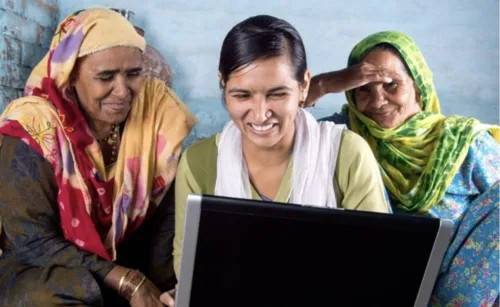Himayat Initiative: Bridging the Gap for Domestic Workers
In India, domestic workers form the backbone of the urban household, yet over 90% of these women lack social and economic protection, plunging them into cycles of poverty and vulnerability.
The Himayat platform emerges as a beacon of hope, aiming to change the way domestic workers and their employers interact, ensuring financial stability and social security for this marginalized workforce.
The Genesis of Himayat
The brainchild of Arya Diwase, a Duke MBA student, along with her co-founders Anushka Desai from University College London and Riya Patil from the Indian Law Society’s Law College, Himayat was conceived out of a shared personal history and a deep understanding of the struggles faced by domestic workers. The Himayat founders were raised by women who worked as maids and were passionate about a better future for domestic workers in India.
Participating in Duke’s Melissa & Doug Entrepreneurs Accelerator, Diwase, alongside Himayat, is at the forefront of addressing the lack of formal employment benefits for domestic workers. Diwase’s journey from founding Jazz Hands, a startup leveraging drama to teach English in India, to creating Himayat during the COVID-19 pandemic reflects her commitment to social change and entrepreneurship.
Addressing a Nationwide Challenge
With approximately 50 million women employed as maids, contributing to at least 13% of India’s GDP, the lack of regulation in this sector exposes them to numerous hardships. The pandemic underscored the fragility of their employment situation, with many losing their income overnight due to the absence of any form of unemployment insurance or paid leave.
Himayat aims to formalize the employment of domestic workers, offering them much-needed employment benefits and providing employers with accountability. The platform is designed to foster long-term relationships between maids and their employers, ensuring loyalty and reliability on both sides.
How Himayat Works
Targeting densely populated communities such as apartment complexes, Himayat’s rollout strategy involves onboarding families to subscribe to the platform. This subscription fee enables domestic workers to access a range of benefits without any cost to them, including health insurance and a savings account that safeguards their financial independence.
Ensuring domestic workers have their bank accounts, addresses the patriarchal challenges that often see women’s earnings taken by others. This approach empowers the workers financially and guarantees that they receive the benefits directly.
The Impact of Himayat
What sets this apart is its dedication to creating sustainable, long-term relationships between domestic workers and their employers. This platform is not merely about facilitating employment opportunities; it’s about establishing a system of mutual respect and accountability where domestic workers are recognized for their contribution to the economy and society.
Through the support of the Melissa & Doug Entrepreneurs Accelerator and the wider Duke entrepreneurship ecosystem, Diwase and her team are poised to make significant strides in improving the lives of millions of domestic workers in India.
Conclusion: A Step Towards Equality
Himayat represents a groundbreaking approach to addressing the challenges faced by India’s domestic workers. By providing a structured platform for employment benefits and fostering a sense of accountability and loyalty among employers, Himayat is poised to make a lasting impact on the lives of domestic workers, ensuring they are financially protected and socially secure. This initiative not only promises a brighter future for domestic workers but also highlights the potential for innovative solutions to transform traditional employment landscapes.



